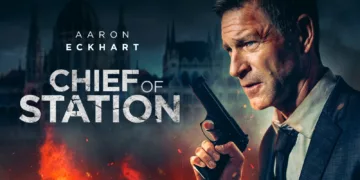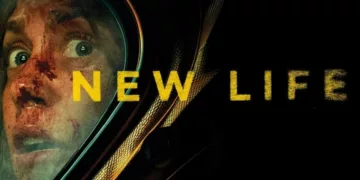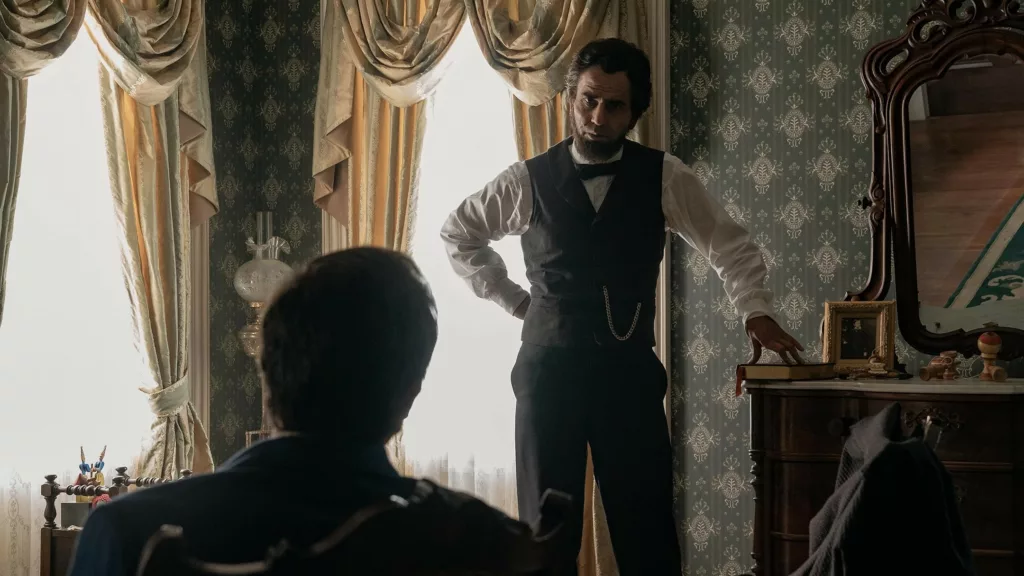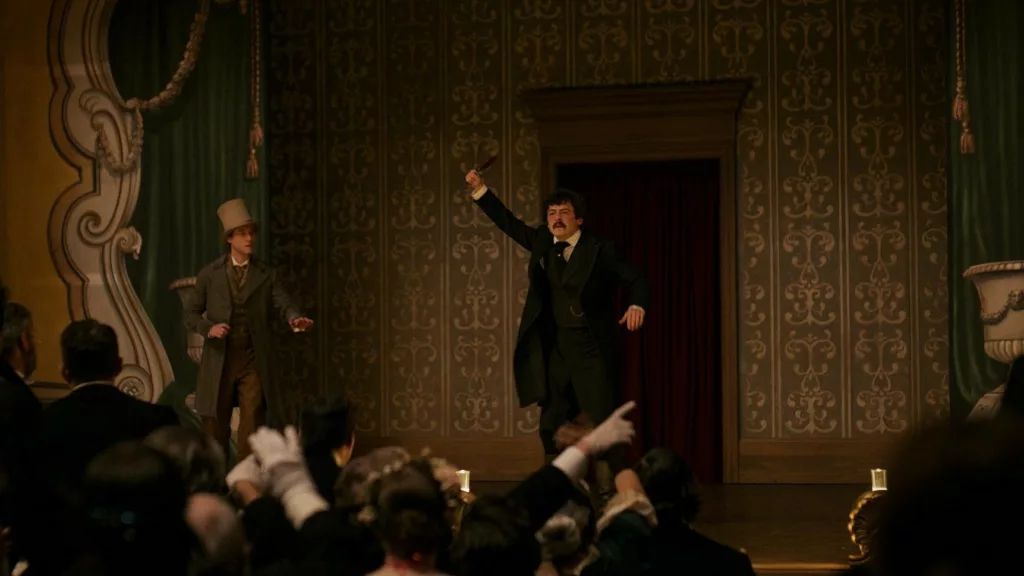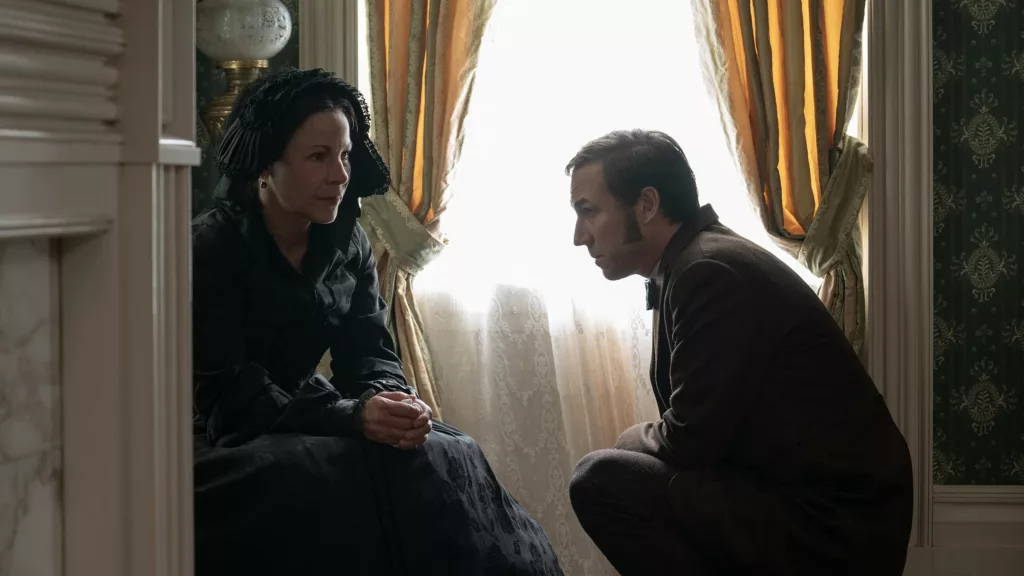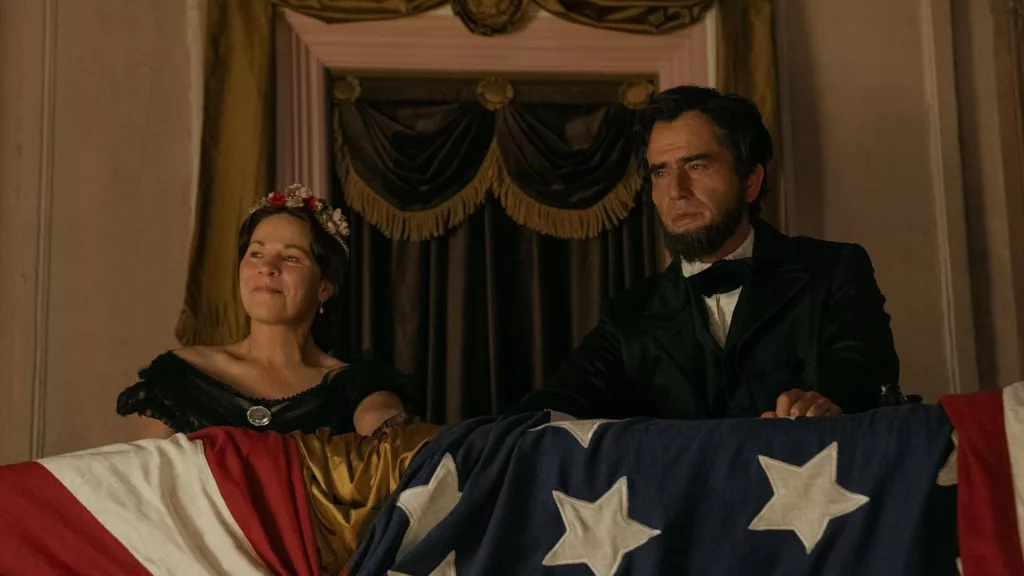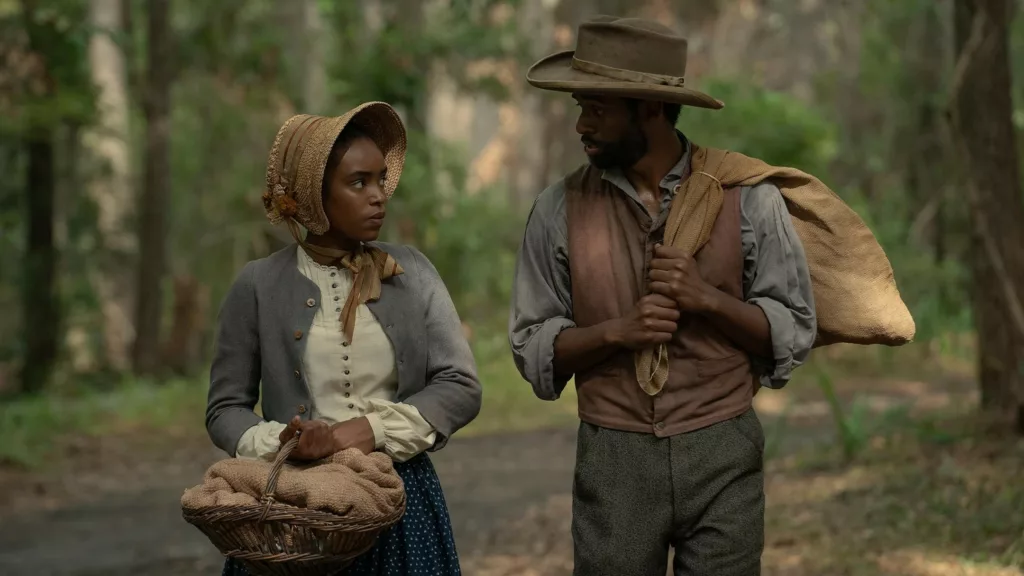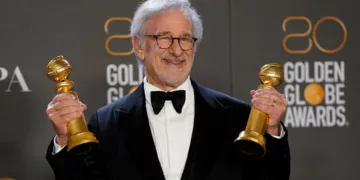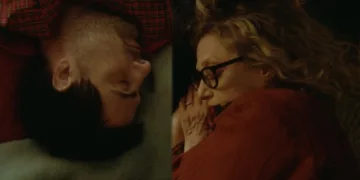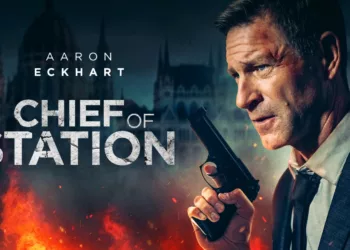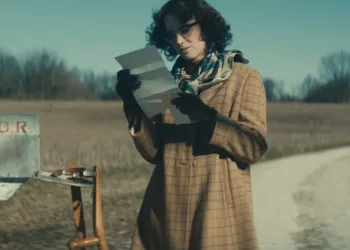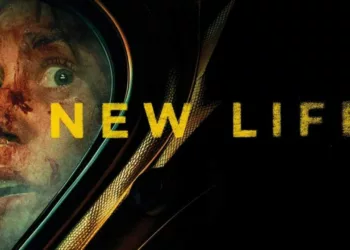In the waning days of the Civil War, a singular act of violence shook the foundations of a nation still reeling from years of brutal conflict. The assassination of President Abraham Lincoln by actor John Wilkes Booth sent shockwaves through the reunified United States. Apple TV+’s historical drama Manhunt chronicles the determined pursuit to bring Booth and his conspirators to justice in the aftermath of that fateful night at Ford’s Theater.
This gripping seven-episode saga thrusts viewers into the chaos and paranoia that gripped Washington D.C. in April 1865. With Lincoln’s body still warm, his Secretary of War Edwin Stanton (Tobias Menzies) initiates an urgent manhunt to capture the fleeing Booth (Anthony Boyle).
What begins as a straightforward chase unravels into a tangled web of treachery and conspiracy that cuts to the heart of the efforts to rebuild a nation torn asunder. Stanton’s relentless crusade is as much about upholding Lincoln’s vision for reconciliation as it is about vengeance.
Tangled Web of Conspiracy
The fateful night of April 14th, 1865 sets the stage as John Wilkes Booth, a famous actor with confederate sympathies, guns down President Lincoln during a performance at Ford’s Theater in Washington D.C. In the aftermath, Lincoln’s close friend and Secretary of War Edwin Stanton mounts an urgent manhunt to bring the assassin to justice.
What initially seems a solitary act of madness soon metastasizes into a far more serpentine plot. As Stanton’s investigation intensifies, a deeper conspiracy begins to take shape – one with potential ties reaching into the upper echelons of the defeated Confederacy itself. Stanton must race to uncover the truth before lingering Confederate forces can undermine the Union’s hard-won victory and reverse Lincoln’s vision for Reconstruction.
The series deftly weaves its taut narrative through a non-linear structure, cutting between Stanton’s pursuit of Booth and haunting flashbacks that provide vital context about the fractious political climate preceding the assassination. These glimpses into the past add psychological depth to the pivotal players while paradoxically ratcheting up tension about the inescapable fatality that awaits Lincoln’s future.
Dueling Souls of a Divided Nation
At its core, Manhunt is a riveting duel between two diametrically opposed yet equally formidable adversaries. In the corner of righteousness stands Edwin Stanton, played with tactically-restrained intensity by Tobias Menzies. As Lincoln’s friend and staunch ideological ally, Stanton is the dogged moral center, willing to sacrifice his own health and family stability to extinguish the insurrectional embers ignited by Booth’s unforgivable act. Menzies imbues him with a simmering passion and unwavering dedication to Lincoln’s egalitarian principles.
His counterweight is the chilling John Wilkes Booth, brought to life through Anthony Boyle’s masterful portrait of narcissistic delusion. Booth fancies himself a romantic revolutionary figure, but Boyle peels back his charismatic facade to reveal an embittered egomaniac driven by callous self-interest rather than any virtuous cause. Brazen attacks on the president were merely a final blood-soaked appeal for the fame and adulation he hungers for. Boyle’s Booth anchors the narrative as its most compellingly loathsome villain.
Between this clash of ethical extremes walks Hamish Linklater’s Abraham Lincoln, a world-weary yet principled leader. While inevitably enshrined in makeup and projection befitting his monumental stature, Linklater still unearths the man beneath the myth through tender interludes with his wife Mary Todd (Lili Taylor) and flashbacks to paternal turmoil surrounding his son’s illnesses. This wistful deconstruction lends Lincoln’s shocking demise an even more visceral emotional impact.
The ensemble is further enriched by figures like Lovie Simone’s Mary Simms, a formerly enslaved woman whose tenuous circumstances intersect with the manhunt in unexpected ways. Her plight emphasizes how Stanton’s crusade is about securing a freedoms for an entire marginalized population, not just righting one crime against their emancipator-in-chief.
A Visually Compelling Chronicle
Director Carl Franklin, an executive producer who also helms several pivotal episodes, mounts this historical saga with a suitably handsome and textured aesthetic. The camerawork has a grainy, naturally-lit intimacy that lends authenticity even to the most grandly-staged interiors of the White House and smoky congressional backrooms. Judicious use of warm amber hues and chilly blues enhances the tonal schism between the hope represented by Lincoln’s ideals and the ominous plottings of Booth’s insurrectionists.
While some critics have taken issue with the intermittent indulgence in gratuitous visual flourishes, Franklin’s directorial restraint keeps the narrative thankfully free of aggrandizing theatricality. The series’ fidelity to period detail is nigh impeccable – from the superbly-tailored cavalry coats and full-skirted day dresses to the meticulously upholstered parlor rooms where so much political intrigue unfolds.
That said, the non-linear structure, while initially jarringly haphazard in its chronological jump-cutting, ultimately pays rewarding dramatic dividends. Interweaving the dueling timelines of Lincoln’s life and Booth’s increasing radicalization escalates the tragic tension in an utterly engrossing manner.
A Masterclass in Duality
Any discerning viewer will be immediately transfixed by the electrifying performances at the scorching center of Manhunt. As tenacious Secretary of War Edwin Stanton, Tobias Menzies is simply magnetizing, radiating a simmering intensity and righteous determination. He captures both Stanton’s unflappable moral certitude and the heavy burden of responsibility weighing on his asthmatic frame. Menzies’ nuanced work attains its apotheosis in confrontations with the serene menace of Anthony Boyle’s John Wilkes Booth.
In the role of Lincoln’s assassin, Boyle is nothing short of revelatory. He imbues Booth with smoldering charisma and a peacock’s arrogant swagger, only to peel back layers of narcissism, delusion, and outright sociopathy. Boyle’s explosive volatility keeps audiences consistently unsettled as to just how far this unhinged wildcard might escalate. His scenes simmer with the disquieting knowledge that we’re witnessing the origins of infamy.
Between these two gravitational performances orbits Hamish Linklater’s poignantly human depiction of Lincoln himself. While the elaborate aging makeup can admittedly prove somewhat distracting, Linklater still locates the melancholic poet’s soul beneath the iconography. His Lincoln movingly grapples with private grief and family strife even as the burdens of reconstruction weigh on his towering legacy.
The surrounding ensemble shines just as brilliantly in supporting roles. Lili Taylor is devastating as the haunted Mary Todd Lincoln, reeling from compounded tragedies. Lovie Simone delivers a grounded, empathetic turn as the formerly enslaved Mary Simms, whose perspectives underscore the real-world stakes of Stanton’s crusade. And Patton Oswalt unexpectedly impresses by leaning into the eccentricities of detective Lafayette Baker with focused intensity.
Reverberations of a Conflicted Past
While operating as a gripping conspiracy thriller, Manhunt also proves itself a richly thematic exploration of justice, political violence, and the perils of societal fracture. At its core, the series dramatizes the sheer fragility of democracy itself – how even a hard-won victory like the Civil War cannot ensure lasting peace if malignant ideological undercurrents are allowed to fester.
In Stanton’s frantic efforts to unmask the full breadth of Booth’s seditious plot, we’re reminded how easily the noblest political reforms can be subverted by the whims of a renegade faction just unwilling to accept progress. The rise of the conspiratorial fringe that emboldens Booth rings all too discomfortingly resonant with our own era’s disintegrating civic cohesion.
That said, the series largely avoids clumsy sermonizing on such contemporary parallels. Any on-the-nose flourishes, like a self-satisfied villainous monologue about society’s elite being untouchable, arise organically from the narrative circumstances rather than transparently preachy embellishments. Manhunt admirably trusts viewers to intuit the profound yet unresolved social dynamics it so presciently articulates.
Engrossing Vision of a Watershed Moment
In its richly layered restraint, Manhunt emerges as a series of truly staggering depth and relevance. What could have easily devolved into mere melodramatic true crime fodder instead plumbs the complex personal, political, and moral dimensions surrounding one of American history’s most pivotal atrocities.
The show’s greatest strengths coalesce around its impeccable production values and a gifted cast that breathes pathos into the saga’s most unassuming interludes. Menzies, Boyle, and Linklater’s measured performances prove particularly transcendent in their nuanced humanity.
If Manhunt missteps, it’s in straining at times to gild its themes with distracting nonlinear devices and superfluous plot tangents. One can’t escape a nagging sense that a more streamlined approach might have rendered the narrative’s searing insights that much more incisive.
Still, such reservations pale beside the sheer ambition and artistry coursing through this vital, haunting treatise on democracy’s perpetual fragility. For viewers undaunted by historical dramatizations of intense complexity, Manhunt demands to be experienced and dissected with the same forensic fervor as Stanton himself. An uncompromising vision as brutal as it is beautiful, examining a wound this nation has never truly healed.
The Review
Manhunt
Anchored by a trio of exquisitely layered performances, Manhunt is an engrossing and uncommonly nuanced exploration of one of American history's darkest crucibles. Director Carl Franklin grounds the suspenseful conspiracy thriller dimensions in meticulous period realism, while showrunner Monica Beletsky's scripts illuminate the profound personal tolls and political complexities undergirding the aftermath of Lincoln's assassination. Though its unconventional narrative structure can occasionally prove more distracting than enlightening, Manhunt remains an urgent and artfully crafted exhortation about democracy's perpetual fragility that masterfully reverberates into the present.
PROS
- Powerful performances by Tobias Menzies, Anthony Boyle, and Hamish Linklater
- Nuanced exploration of complex historical themes and events
- Excellent production values and attention to period detail
- Engaging blend of conspiracy thriller and character drama
- Timely social relevance in exploring threats to democracy
CONS
- Non-linear narrative structure can be jarring at times
- Some subplots and characters feel underutilized
- Linklater's Lincoln portrayal occasionally distracting
- Pacing lags a bit in later episodes after initial manhunt




